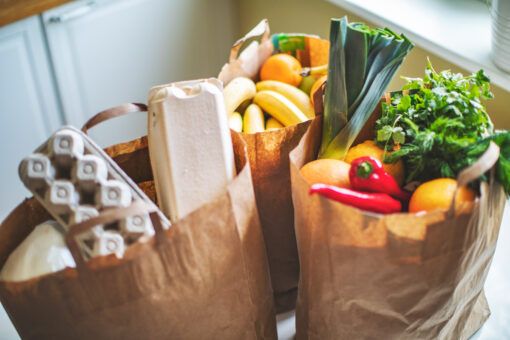
In the UK, food production and consumption represents around 20% of greenhouse gas emissions, half of which is related to imports (largely through feed crops and the related deforestation), rather than the food produced in the UK. As well as shifting to more sustainable food production, we need to substantially reduce – by 50% – the amount of food lost and wasted along the food supply chain, from production to consumption. Furthermore, as the biggest driver of deforestation, agriculture has a significant impact on the planet’s ability to capture and sequester atmospheric carbon.
In particular, red meat consumption will need to be cut by half if the food system is to stay within sustainable environmental limits. Changing our diets in this way will not only help to mitigate climate change but will also improve our health: there is also clear evidence that replacing animal protein with plant-based protein results in lower rates of stroke, heart disease, diabetes, and overall death rates. If we are to hope to limit dangerous climate change and improve health outcomes, governments – including our own – will have to do far more to improve the sustainability of the food that we eat. Action should urgently be taken on a number of demand-side and supply-side measures.
Changing diets will require concerted action, and leadership from government will play an important part in that. There are a number of models for ensuring that that is in place, but as a minimum we call for the establishment of a cross-departmental, ministerial working group to bring together thinking on food and farming, health, climate change and trade. This working group should be charged with overseeing the delivery of the National Food Strategy.
